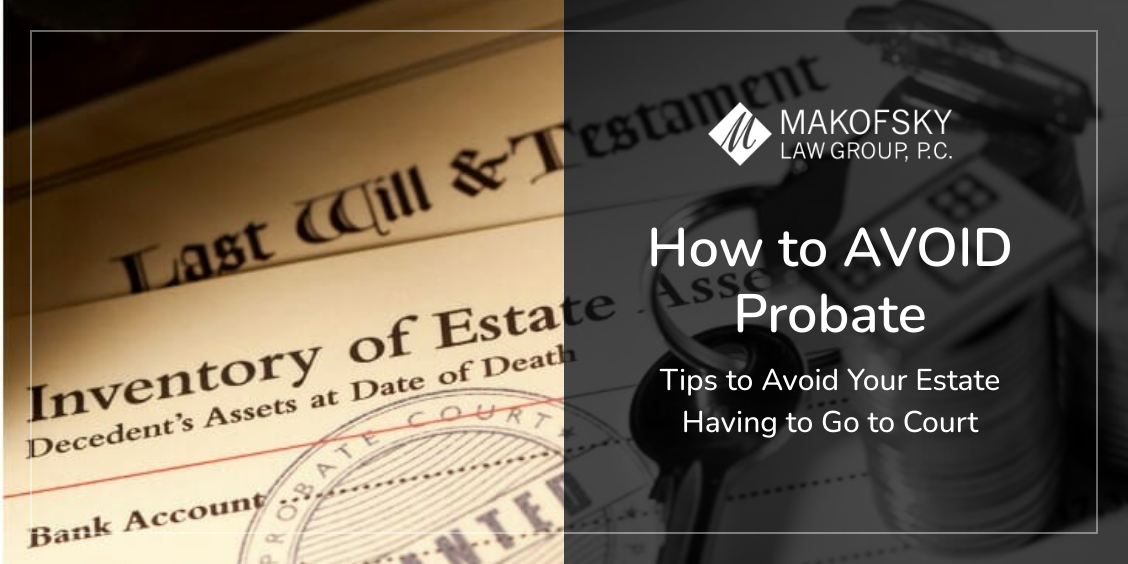
Welcome to the final part of our Probate series.
In previous blogs, we discussed what probate is, how long probate can take, and some of the pros and cons of probate. For one reason or another, many individuals seek the advice of an experienced attorney to create an estate plan that avoids probate. Here are a couple of ways that can help your estate avoid going through probate:
- Have designated beneficiaries named to your assets. You can typically name beneficiaries to assets such as life insurance policies, retirement assets, and even bank accounts. It is important to note that many institutions allow for the customer to name a primary beneficiary and a secondary (contingent) beneficiary.
- Create and fund a trust.The administration of a trust typically does
 not require any court approval or intervention when the creator(s) of the trust has passed away and the trust assets are ready to be distributed. This helps create a less stressful situation and is a BIG time and money saver for families following the death of a loved one.
not require any court approval or intervention when the creator(s) of the trust has passed away and the trust assets are ready to be distributed. This helps create a less stressful situation and is a BIG time and money saver for families following the death of a loved one.- IMPORTANT – there are different kinds of trusts that serve different purposes. It is imperative to seek the advice of an experienced Elder Law attorney to determine which type of trust best suits your needs and goals.
Not everyone should have an estate plan that avoids probate. In some cases, it may be wise to have your estate go through the probate process; for instance, to protect a minor or disabled loved one with court oversight. Click here to learn when probate may be a good idea.
Everyone’s family, financial and health situation is different and that is why it is important to consult with an experienced Elder Law attorney to determine what the right estate plan is for you. At Makofsky Valente Law Group, P.C. we are here to help with all of your estate planning and future needs. We are only an email or phone call away!
This was the final piece in our series on Probate. Did you enjoy it? Are there other Elder Law or Estate Planning topics you would like to see covered here? Let us know! Email us!
The information provided herein does not, and is not intended to, constitute legal advice; instead, all information, content, and materials available here are for general informational purposes only.


 not require any court approval or intervention when the creator(s) of the trust has passed away and the trust assets are ready to be distributed. This helps create a less stressful situation and is a BIG time and money saver for families following the death of a loved one.
not require any court approval or intervention when the creator(s) of the trust has passed away and the trust assets are ready to be distributed. This helps create a less stressful situation and is a BIG time and money saver for families following the death of a loved one.